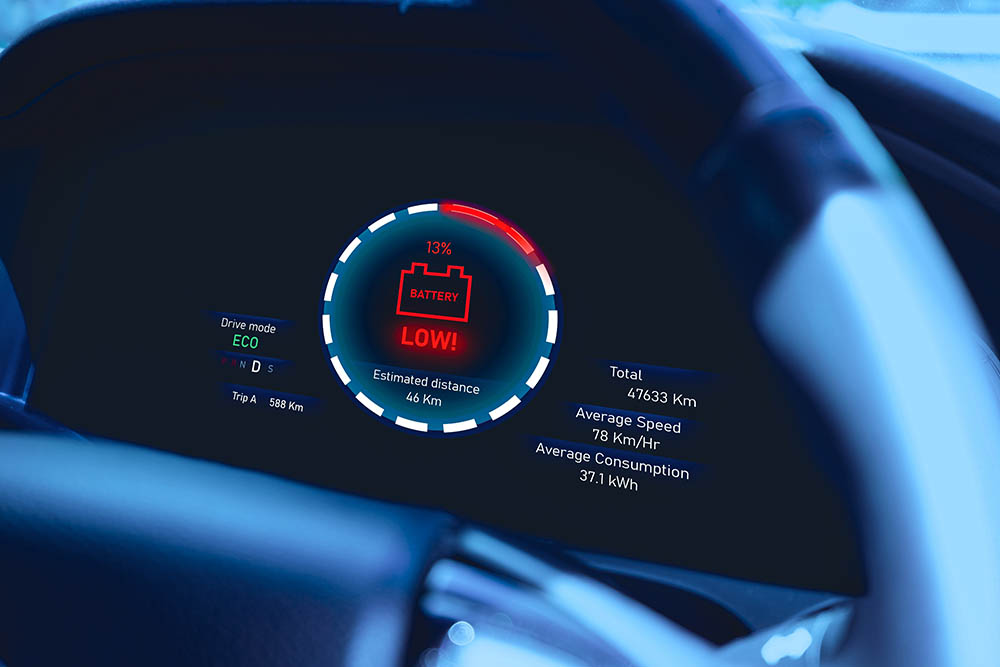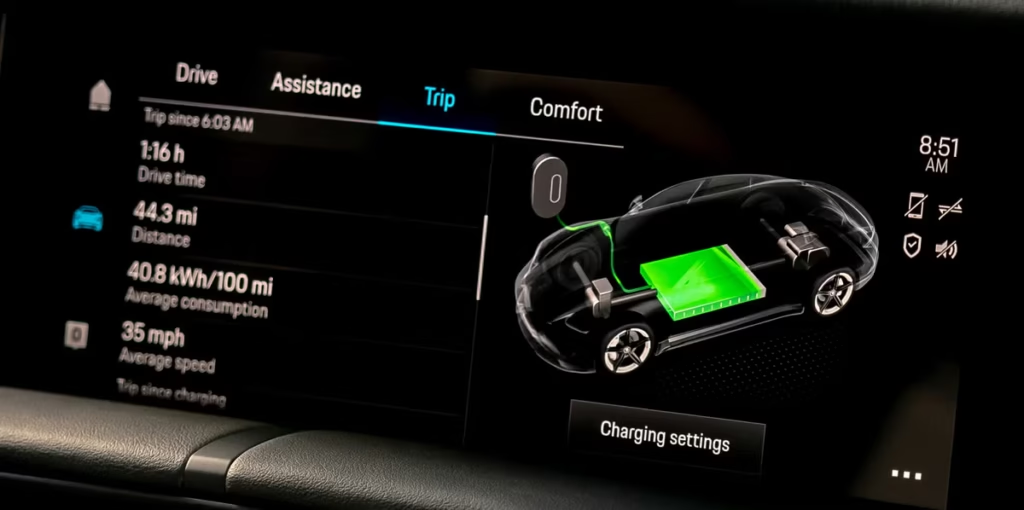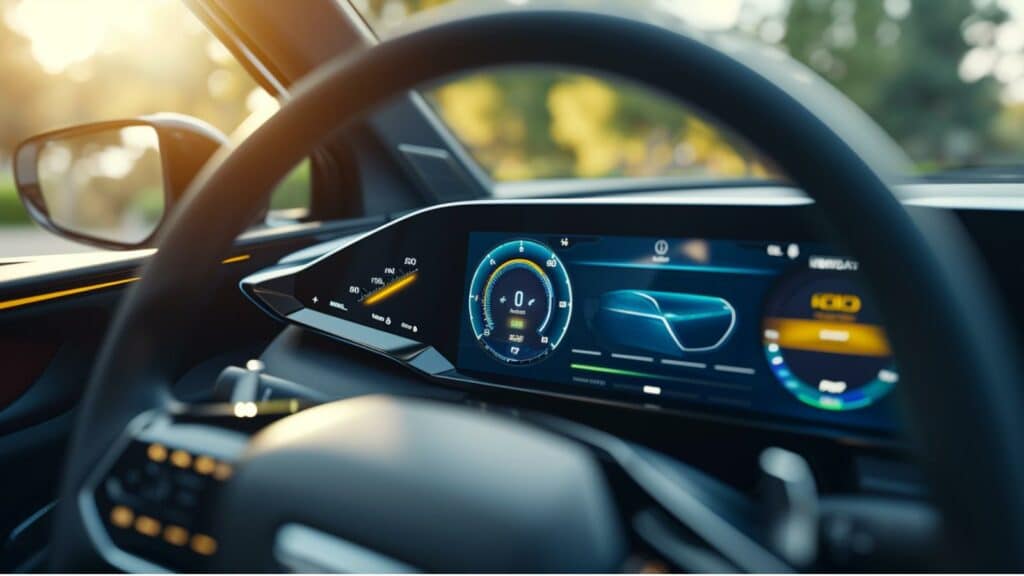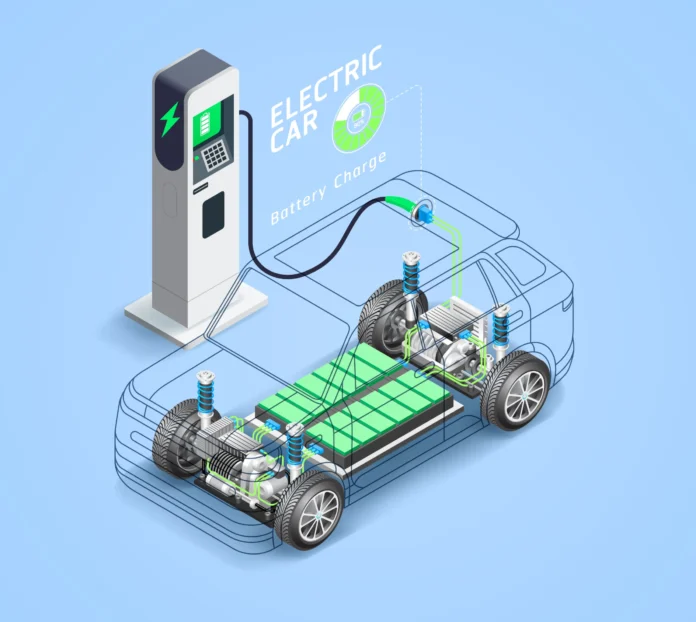Electric vehicles (EVs) are revolutionizing the way we drive, offering sustainability and cost savings. However, like any battery-powered device, an EV’s battery degrades over time. If you notice a drop in range, longer charging times, or unexpected performance issues, it might be time for an EV battery replacement. Recognizing the early warning signs can help you avoid breakdowns and costly repairs. In this guide, we’ll discuss the key indicators that signal your EV battery needs replacement and how you can maximize its lifespan.
Key Points
- Reduced Driving Range
- Slower Charging Times
- Unusual Battery Overheating
- Dashboard Warning Lights
- Strange Noises or Vibrations
- Increased Energy Consumption
- Age and Mileage Milestones
Top Signs Your EV Battery Needs a Replacement
1.Reduced Driving Range

you used to zip 300 kilometers on a full charge, but now you’re lucky to hit 200. A shrinking range is one of the loudest screams your EV battery can give. Over time, batteries lose their capacity to hold a charge, kind of like how your phone battery starts fading after a few years. This happens due to chemical degradation inside the cells, and it’s totally normal. But if the drop is sudden or drastic (say, 20-30% in a few months), that’s a sign your battery’s health is tanking. Keep an eye on your range over a few charge cycles to see if it’s a pattern. If it is, replacement might be on the horizon.
2.Slower Charging Times

Does it feel like your EV is taking forever to juice up? If your fast charger now feels more like a charger, your battery could be the culprit. As batteries age, their ability to accept a charge efficiently drops. You might notice it takes an extra hour, or more, to hit 80% when it used to be a breeze. This isn’t just about old age, though; damaged cells or a failing battery management system (BMS) could be slowing things down. Next time you plug in, time it and compare it to your car’s manual. A big difference? Time to get it checked.
3.Unusual Battery Overheating
Batteries get warm, it’s part of the deal. But if your EV battery feels like it’s auditioning for a starring role in a summer blockbuster, that’s a problem. Overheating can happen during charging or driving, and you might notice a hot smell or even a warning from your car. This could mean the cooling system’s failing or the battery cells are breaking down, generating excess heat. Ignoring this is like playing with fire (sometimes literally). Pop the hood (or wherever your battery hides) and look for signs like bulging or leaks, then call a pro ASAP.
4.Dashboard Warning Lights

Your EV’s dashboard is like its personal diary, it’ll spill the tea when something’s wrong. If you see a battery warning light, a “service battery” message, or even a check-engine light that won’t quit, don’t brush it off. Modern EVs are smart; they monitor battery health and throw up these alerts when voltage drops, cells fail, or the BMS detects an issue. It’s not always a death sentence, sometimes it’s a loose connection, but paired with other signs on this list, it’s a clue your battery’s waving a white flag.
5.Strange Noises or Vibrations
EVs are supposed to be quiet, right? So if you hear weird hums, clicks, or feel unexpected vibrations, your battery might be trying to tell you something. These oddities can come from internal shorts, loose components, or even failing cells rattling around. It’s not just annoying, it’s a sign of stress. One time, my buddy’s EV started buzzing like a beehive, and it turned out a cell pack was toast. If your car’s suddenly chatty, don’t ignore it; get it diagnosed before it escalates.
6.Increased Energy Consumption
If you’re charging more often for the same trips, your battery’s efficiency might be slipping. Think of it like a leaky bucket, energy’s escaping somewhere. This could be due to degraded cells not holding a charge or the BMS overcompensating for weak spots. Check your energy usage stats (most EVs have a handy display for this). If the numbers are creeping up without a change in driving habits, your battery’s probably losing its mojo.
7.Age and Mileage Milestones
Most EV batteries are built to last 8-10 years or 100,000-150,000 kilometers, depending on the make and model. If your car’s hitting these milestones, it’s not a shock if the battery starts fading. Manufacturers often warranty batteries for this long, so check your paperwork, you might get a freebie replacement if you’re still covered. Even if it’s not dead yet, an older battery’s performance will dip. Pair this with other signs, and it’s a solid hint to start planning for a swap.
Conclusion
Keeping an eye on your EV battery’s health is essential for maintaining performance and efficiency. If you notice reduced range, frequent charging issues, or overheating, these could be signs your EV battery needs replacement. Regular maintenance and smart charging habits can help extend your battery’s life, ensuring a smooth and cost-effective driving experience. By staying informed, you can avoid unexpected failures and enjoy the benefits of electric mobility for years to come.
FAQs on EV Battery Replacement
Q1: How long does an EV battery typically last?
A: Most EV batteries last between 8-10 years or 100,000-150,000 kilometers, depending on usage, maintenance, and environmental factors.
Q2: What is the most common sign that my EV battery needs replacement?
A: A significant drop in driving range is the most noticeable indicator. If your EV used to cover 300 miles but now struggles to reach 200, your battery may be deteriorating.
Q3: Why is my EV taking longer to charge than before?
A: Slower charging times could indicate battery degradation or issues with the battery management system (BMS). It’s best to compare charging times with the manufacturer’s specs.
Q4: Can overheating damage my EV battery?
A: Yes, excessive heat can accelerate battery degradation and even cause safety hazards. If your EV consistently overheats, have it inspected immediately.
Q5: What should I do if my EV displays a battery warning light?
A: A battery warning light suggests a potential issue with voltage, failing cells, or BMS errors. Get your car diagnosed by a professional to avoid further damage.
Q6: Is it normal for my EV to make noise or vibrate?
A: EVs are typically silent, so unusual buzzing, clicking, or vibrations might indicate loose battery components or failing cells. A diagnostic check is recommended.








